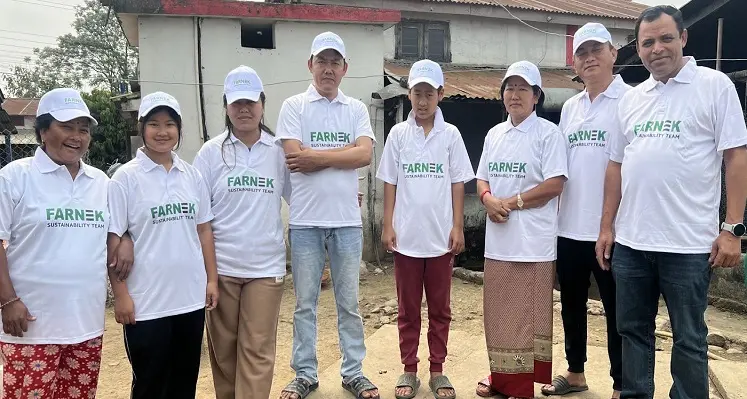Top executives from the ESG (Environment, Social & Governance) team of leading UAE-based smart and green facilities management (FM) company Farnek, revisited Nepalese families that received Farnek biogas plants
In 2015, the plants were installed by Farnek technicians to provide a renewable energy solution, allowing villagers to produce methane by fermenting animal waste.
Upon speaking with local residents, it was concluded that the installation of these plants saved a considerable amount of their time, effort and money, that would earlier be spent in collecting wood, and buying gas and fertiliser from local markets. One of the farmers also added that he recycled the slurry from the cow dung and used it as fertiliser for his corn fields.
Plant construction
To construct these plants, a pit was dug close to the house, within which an enclosed dome-shaped digester was built underground out of clay and bricks, which was then covered by soil.
There is an inlet for cow dung and other organic waste and liquids, which during the decaying process, produce methane. An outlet pipe then carries the gas direct to the kitchen for cooking and lighting. Even the slurry of the remaining manure serves as a high-quality fertiliser replacing chemicals and any excess can also be sold on to other farmers.
The dung from two or three cows each day produces enough methane gas for five hours of cooking or lighting. Each biogas plant saves the equivalent of 7.5 tonnes of carbon dioxide emissions per year for up to 20 years, thus contributing to a reduction in the impact of fossil fuel usage.
The villagers agreed that with regular cleaning over the past eight years, maintenance had been minimal, and minor pipeline leaks were easily fixed.
For more information, visit: www.farnek.com




